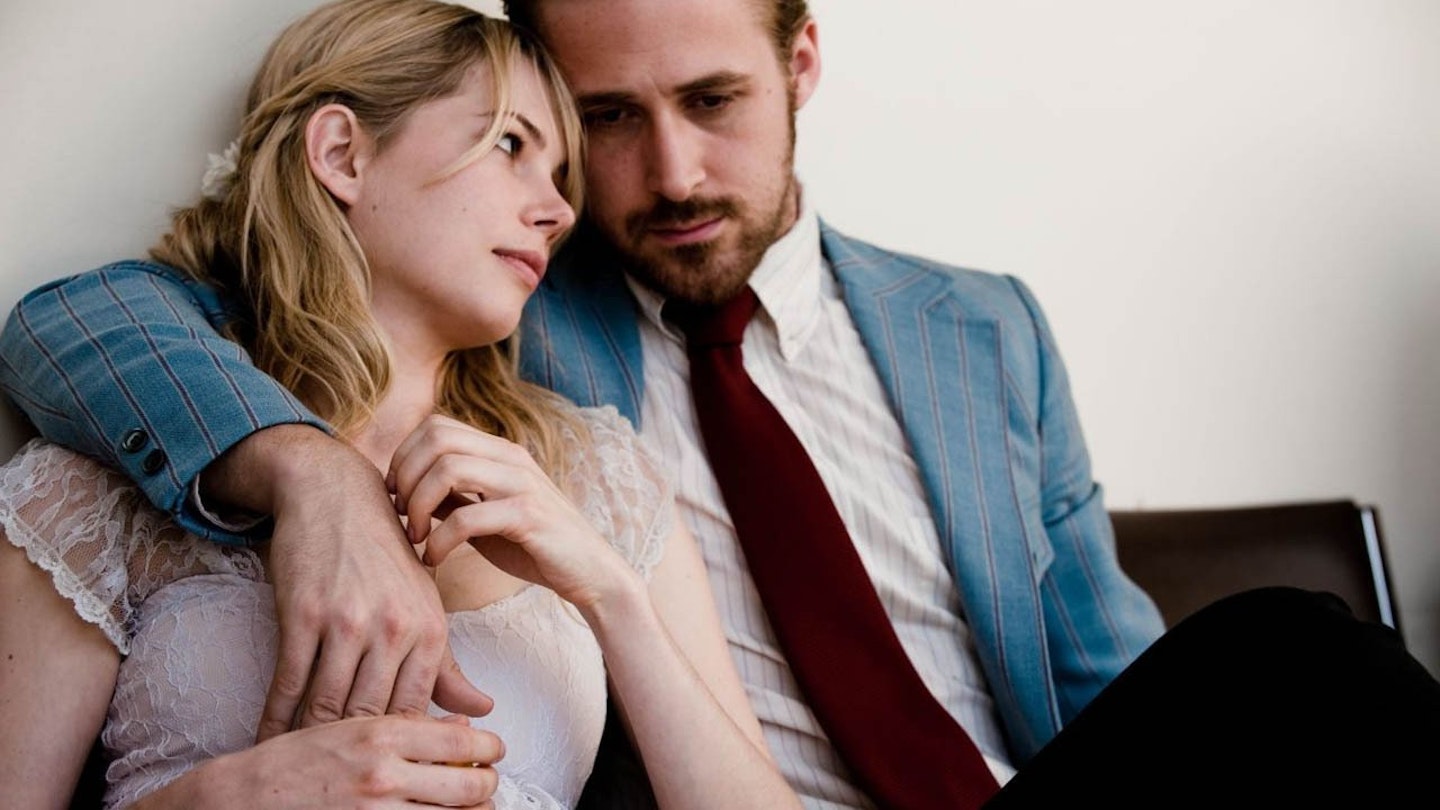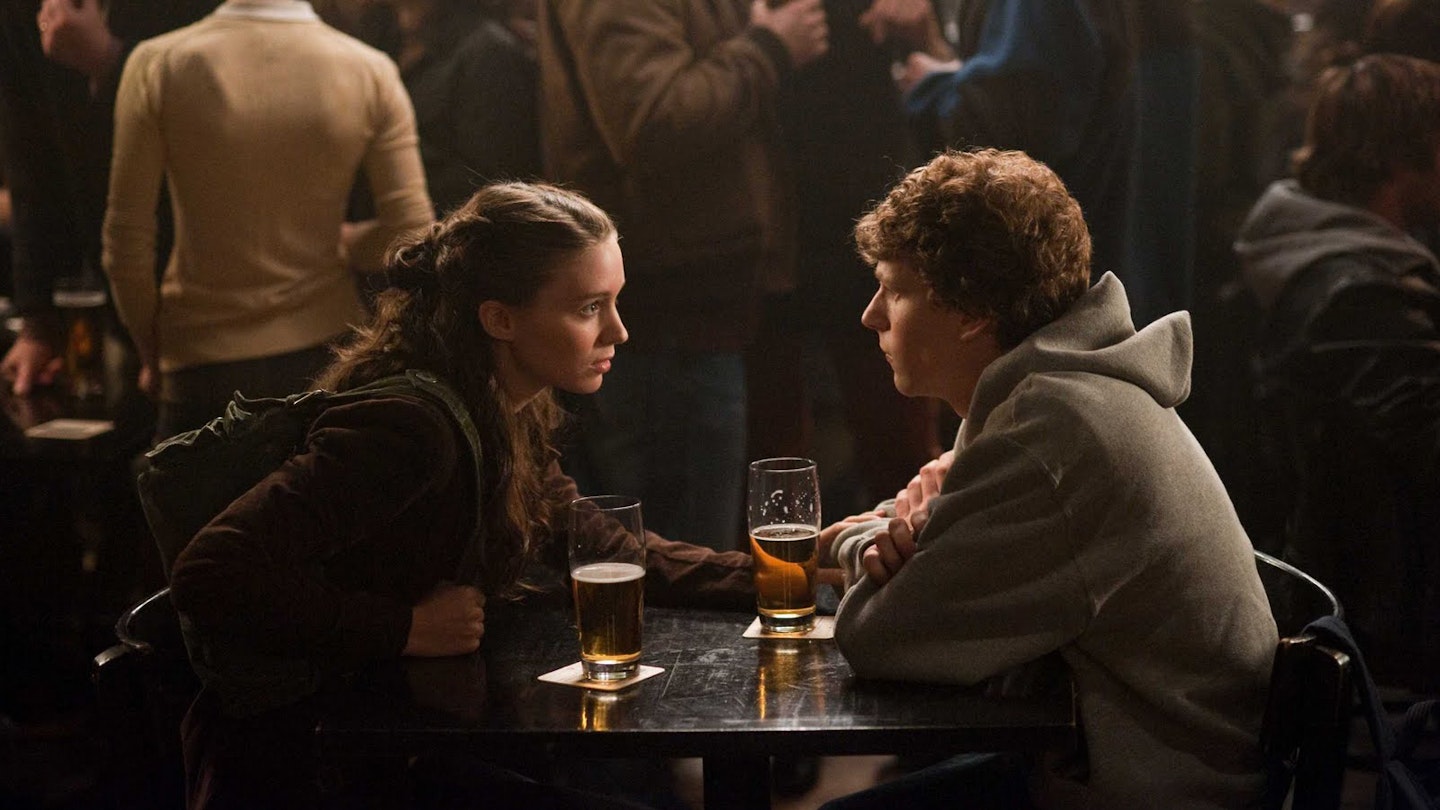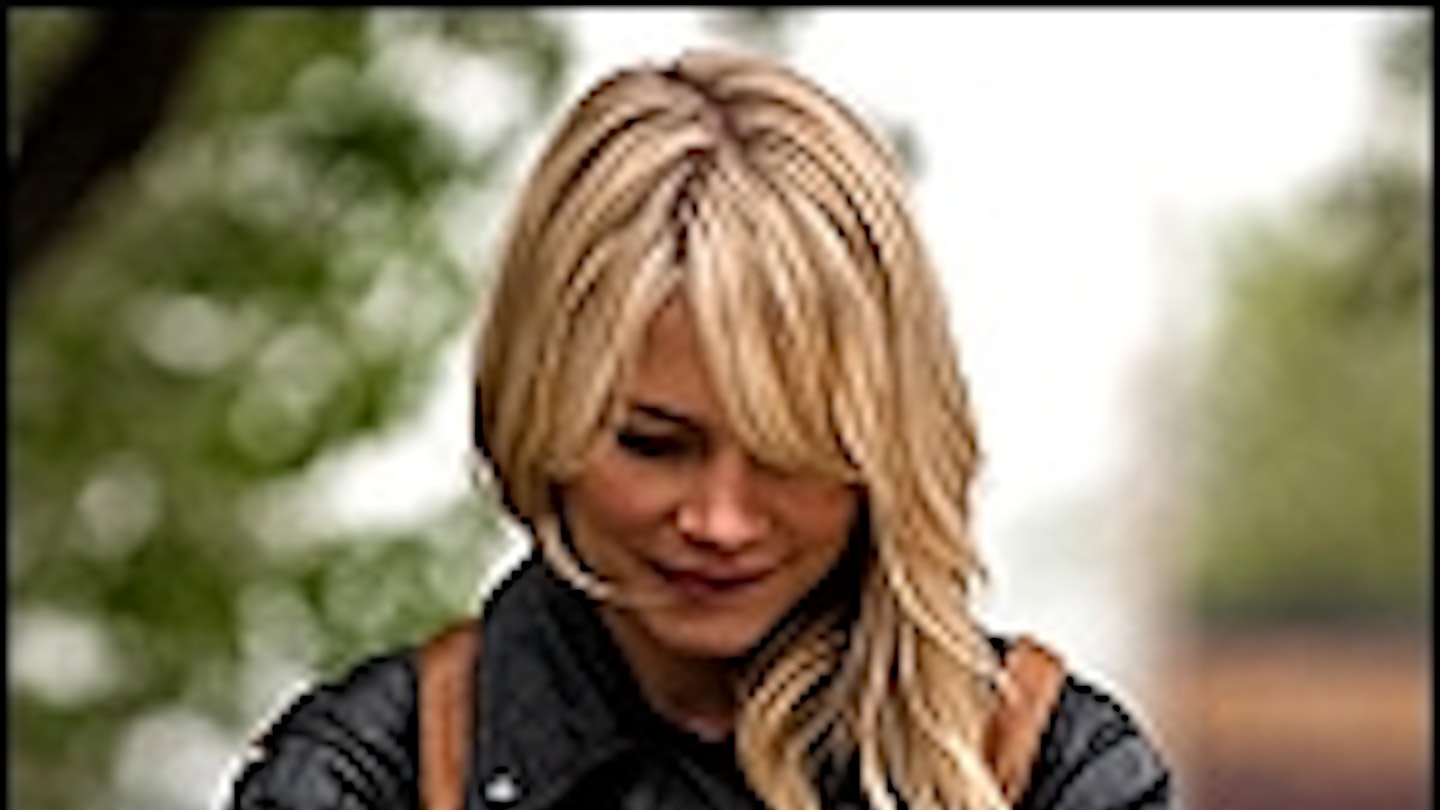Promises can be made just as thoughtlessly as they are broken. And movies often thrive on reassuring lies. Blue Valentine shows the repercussion of a quick-draw decision and that screen romance need not be candy-coated. This is no less valid a love story than, say, Love Story. But there is a different type of cancer destroying the relationship — and the film is a tart antidote to that picture’s pervasive, poisonous catchphrase. Love means never having to say you’re sorry? Bollocks.
A lack of understanding and forgiveness is part of what unmoors the marriage so convincingly portrayed by Ryan Gosling and Michelle Williams. Their scenes of dislocation — digi-shot, in intrusive fashion — are cross-cut with a celluloid-captured meet-cute and romance. This leads to a couple of easy, cruel emotional edits, but is more impressive in how it foreshadows their problems — and even their own foreknowledge of them. It also shows how resentments can build and eat away at a relationship. The issues that undermine Dean and Cindy have always been present — their strengths are also their weaknesses, their charms are also irritations.
At first glance, the film seems easier on Dean than Cindy. She is promiscuous and pragmatic, then frustrated and unavailable. He is cheeky and funny, then caring and laidback. Or is he? Look closer: his familial dedication serves as a handy excuse for aimlessness; her dissatisfaction stems from being bound to a balding Peter Pan (in a smart inversion of movie norms, she is the breadwinner, he the homebody).
In a film of comfortable naturalism, there are a couple of jarring beats: having Gosling sing You Always Hurt The Ones You Love is too much, really, as is staging their last-ditch getaway in a hotel’s themed Future Room (OH, THE IRONY). But the actors are so startling in their emotional availability that you are not long distracted from the heart of the matter. A love story that’s no Love Story, then, it recalls a far superior picture from the same year, 1970. Five Easy Pieces is about restlessness, domesticity and how when we fight with others, we are often fighting our own selves. Blue Valentine is in the same, fine tradition. Hardly a date movie, perhaps, but much more useful to your relationships than a thousand viewings of Sleepless In Seattle. Cheaper than therapy and just as provocative. You won’t see a more honest movie in 2011 — and that’s a promise.




